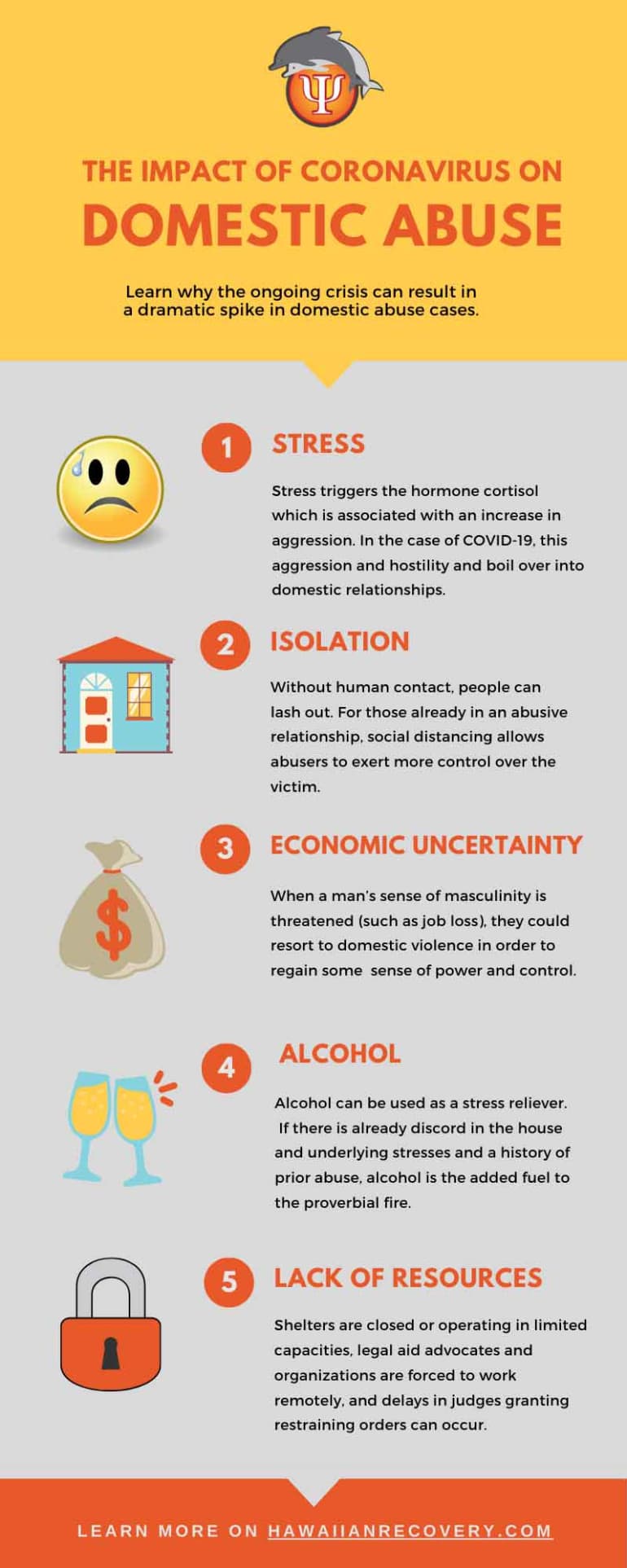The social isolation, unemployment, and economic uncertainty associated with coronavirus has created unbelievable dysfunction throughout the world. One of the most disheartening effects of COVID-19 is the increase in domestic violence and abuse. According to estimates provided by the United Nations Population Fund, a 20 percent rise in domestic abuse cases could result from a three-month quarantine. In total, it is estimated there will be 15 million new cases of domestic abuse and violence as a result of lockdowns worldwide.
This article will explore the main reasons why the ongoing crisis can result in a dramatic spike in domestic abuse cases.
Stress
A major factor of domestic abuse is stress. In relation to COVID-19 (and other viral pandemics), stress is ignited from fear of the unknown. During this pandemic, people live a constant state of worry and panic due to not knowing when the pandemic will end, who is infected, as well as economic and social concerns. Stress triggers the hormone cortisol which is associated with an increase in aggression. In the case of COVID-19, this aggression and hostility and boil over into domestic relationships.
Isolation
Another major factor that can lead to an increased risk of domestic abuse during this pandemic is isolation. With social distancing, workplaces shuttered, public places off-limits, and visits to family and friends discouraged, a profound sense of loneliness and isolation takes over. Without human contact, people can lash out. For those already in an abusive relationship, social distancing allows abusers to exert more control over the victim. Additionally, social isolation can normalize abuse and the victim can solely rely on the abuser to define their own sense of reality.
Economic Uncertainty and Unemployment
One risk factor that must be considered regarding domestic abuse increases during COVID-19 is economic instability. With millions of people filing unemployment claims, households that already are financially burdened may see an increase in domestic violence. A major underlying cause is a perceived threat to the masculine “breadwinner” identity. When a man’s sense of masculinity is threatened (such as job loss), they could resort to domestic violence in order to regain some sense of power and control.
Alcohol
An obvious risk factor that can account for an increase in domestic violence is alcohol use. There is no surprise that liquor store sales have exploded over 200 percent during the pandemic. Alcohol is used as a stress reliever and a coping mechanism for people to get through the isolation of the pandemic. However, if there is already discord in the house and underlying stresses and a history of prior abuse, alcohol is the added fuel to the proverbial fire.
Lack of Resources
In normal situations, those who are abused can turn to law enforcement, court systems, and shelters to get help. Because of the pandemic, a number of things can occur:
- Significant delays in judges granting restraining orders
- Legal aid advocates and organizations forced to work remotely
- Shelters closed or operating in limited capacities
Understanding these risk factors are crucial in you or a loved one is experiencing domestic abuse during these unprecedented times, call Hawaii Island Recovery and speak to one of our compassionate and experienced staff members. We offer effective programs that help heal you, your partner, and your family.

 Hawaii Island Recovery
Hawaii Island Recovery 










